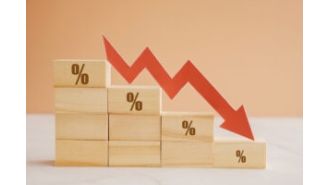The Morgan Housel compilation
I had 3 notes to share as part of this year end “Morgan Housel” goodness compilation –
(1) The first is a post titled “We have no idea what happens next.” As is his wont, Morgan Housel shares a fascinating story about the aftermath of a volcanic eruption in Indonesia in 1815 that disrupted the world for more than a year.
After it resulted in a famine in Germany, it inspired Justus von Liebig to devote his career to improving agriculture. That, in turn, led to Ammonia based fertilizers that changed the course of large scale agriculture. A great example of innovation that was likely inspired by a global catastrophe that was also simultaneously impossible to predict. Morgan then concludes with –
Then there’s the big unknown: the crazy, disconnected, counterintuitive change set in motion this year that we’ll only be able to piece together in hindsight. The kinds of things that only happen when seven billion people have their lives thrown upside down, experience a bunch of stuff they’d never imagined, and are either motivated or forced to do something completely different than they had considered in January.
No one should even guess what that might be. The unpredictability is the point.
But when good vaccine news came out this week, several people said, “there’s light at the end of the tunnel.” Maybe. But I suspect we have no idea what happens next.
Indeed.
(2) Next, he made an insightful observation in another post about low interest rates.
When interest rates are zero, stories about what the future could be are more important than what the present actually is. Interest rates tempt investors away from stories about future potential with promises of returns right now, this year.
Once those returns fall to zero, stories about what could potentially happen years from now – even if it’s low probability – gain most of the market’s attention. And people are good at coming up with awesome stories. That’s part of why Tesla is worth two-thirds of a trillion dollars, and the market is at an all-time high with 10 million people unemployed.
(3) Finally, after reading his book – The Psychology of Money – I shared a few copies with friends. It is an interesting book because it isn’t about how to invest or how to think about money. Instead, I describe it as a book that is about how to think about thinking about money.
The book is a collection of stories and anecdotes that provide food for thought. And, it can either be a light heavy read depending on how you’re feeling.
I walked away with a list of questions that I intend to work through in the coming days. It made me think. And, for that I’m grateful.
Thank you, Morgan, for your excellent work.






